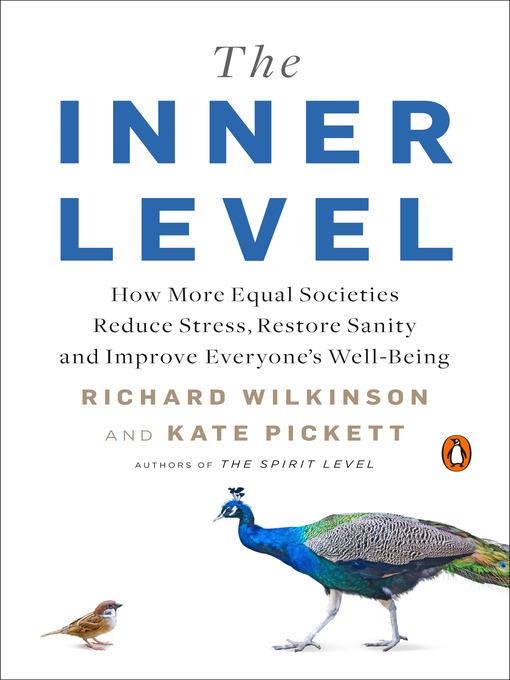
The Inner Level
How More Equal Societies Reduce Stress, Restore Sanity and Improve Everyone's Well-Being
کتاب های مرتبط
- اطلاعات
- نقد و بررسی
- دیدگاه کاربران
نقد و بررسی

November 15, 2018
A study of how economic inequality affects individuals' self-perception and community life.Drawing on recent peer-reviewed research in the U.S. and U.K., British researchers Wilkinson (Emeritus, Epidemiology/Univ. of Nottingham Medical School) and Pickett (Research Champion for Justice and Equality/Univ. of York) expand on and update the argument they put forth in their previous book, The Spirit Level (2009). In the first seven chapters, they analyze the psychological and social consequences of inequality, primarily self-doubt and social anxiety, which they find most prevalent in the two nations where inequality is greatest: the U.S. and the U.K. To deal with these two pervasive and debilitating effects, individuals develop strategies such as narcissism and self-aggrandizement, self-medication with drugs and alcohol, and consumerism "in an attempt to create a positive image of themselves." They may also become convinced that inequality is caused by meritocracy--inherent ability or hard work--thereby absolving themselves of responsibility for questioning social hierarchy. The authors cite "a widespread but largely false belief that people's social status reflects their individual genetic endowments of cognitive ability," when studies show that success is largely determined by parental social status. They also underscore the "increased social evaluative threat" generated by inequality: As people fear shame and distress because of what they imagine others think of them, they become distrustful and, "more worried about appearances and giving the wrong impression," withdraw from community life and political participation. Making a strong case that "inequality is divisive and socially corrosive," the authors assert that greater equality and environmental sustainability can be achieved by instituting changes such as employee representation on corporate boards and in legislative processes and an increase in cooperatives and employee-owned businesses to ensure that democracy is extended into the economic sphere. They acknowledge, however, that such developments will meet with resistance from CEOs, shareholders, and politicians with ties to the wealthy. Progressive politicians, therefore, must advocate this "major step in human progress."A cogent, well-supported analysis and hopeful, if idealistic, suggestion for change.
COPYRIGHT(2018) Kirkus Reviews, ALL RIGHTS RESERVED.

January 1, 2019
British epidemiologists Wilkinson and Pickett continue their analysis of economic inequality and its effect on society. In The Spirit Level (2009), they made a case that equality is essential for any country to thrive. Here they show how big income gaps between the richest and poorest hurt everyone by impacting health, self-esteem, and interpersonal relationships. Income inequality is linked to an increase in mental illness, obesity, substance abuse, homicides, imprisonment, and a decrease in life expectancy. The authors quash myths and misconceptions about the notion of meritocracy. Scandinavian nations are commended for being among the most egalitarian societies in the world. Not so for America, where 40 percent of kids live in, or close to, poverty. And the income differential between CEO pay and production workers' wages in the largest 350 U.S. businesses since 2000 averaged between 200:1 and 400:1. Although numerous charts and graphs interspersed throughout a heavily referenced discussion can make for a slow reading experience, the message is clear and critically important: embrace egalitarianism?for better health and quality of life.(Reprinted with permission of Booklist, copyright 2019, American Library Association.)

























دیدگاه کاربران